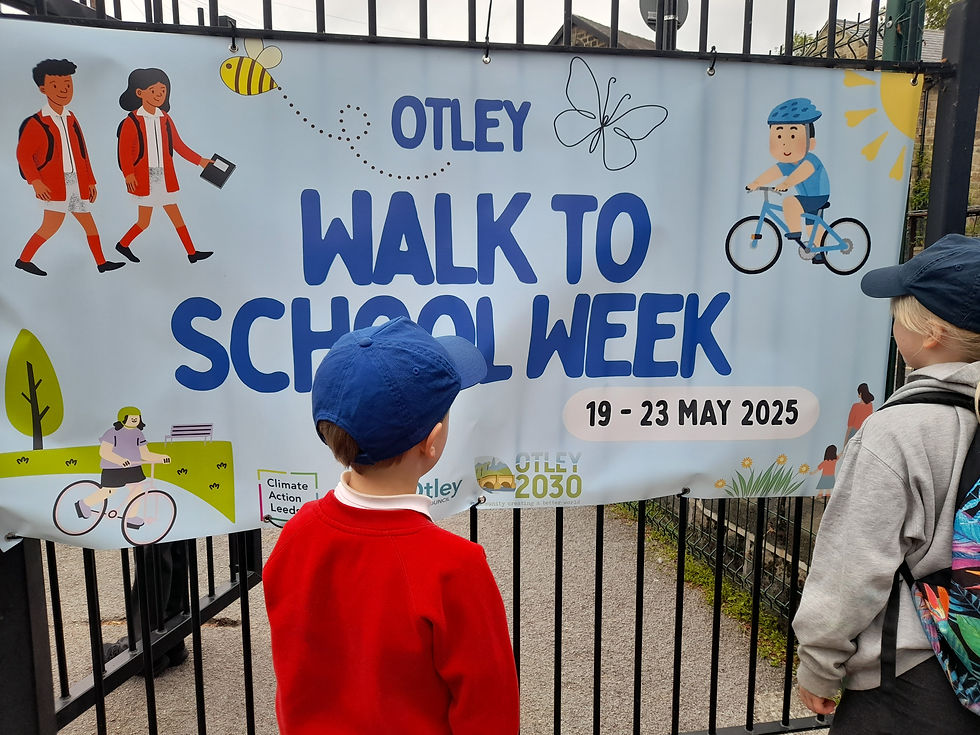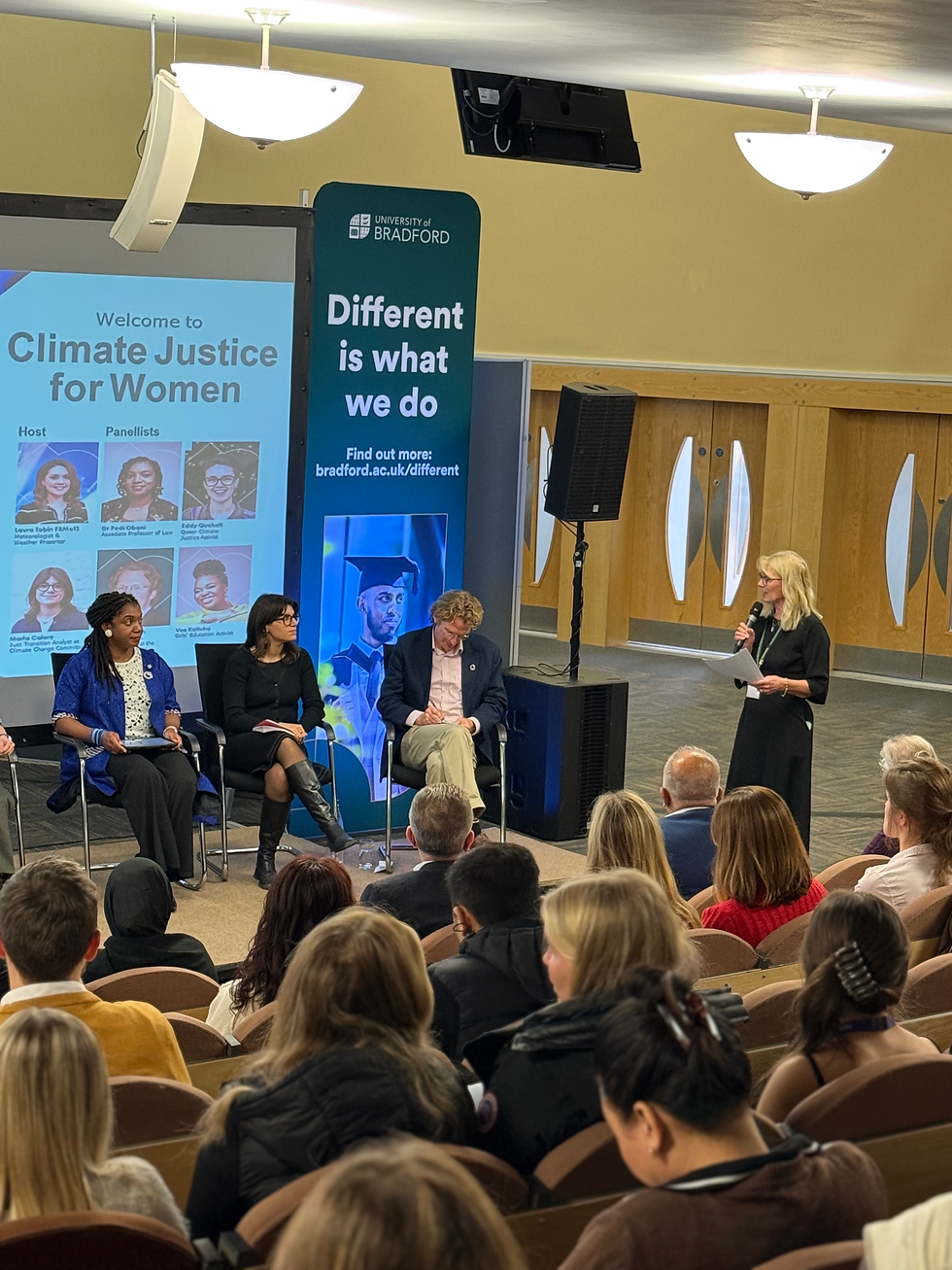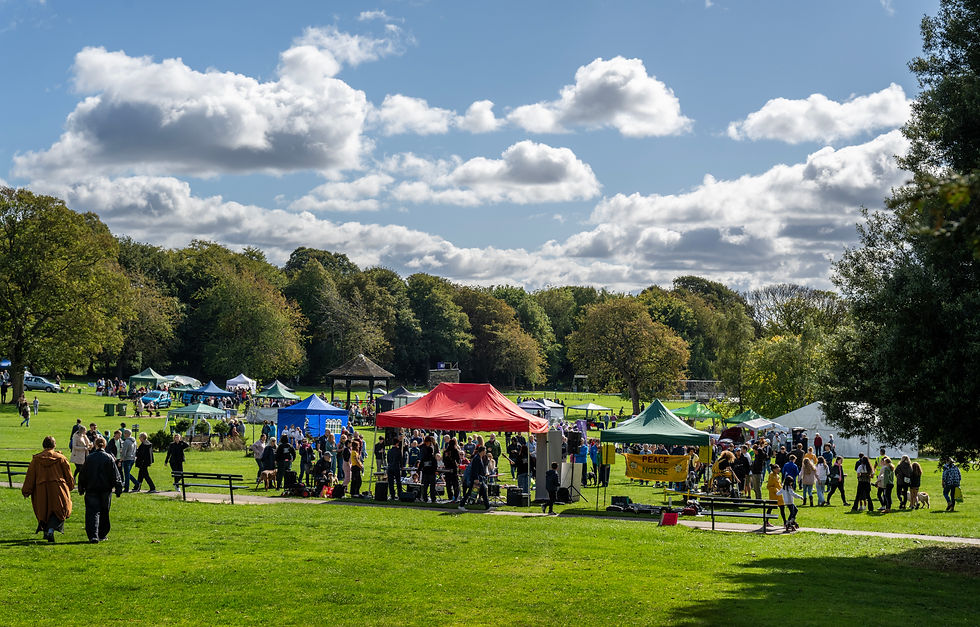Thousands Walk to School in Climate Action Leeds Hubs
- connorcraig-jackso
- Jul 10, 2025
- 5 min read
In 2024, Alwoodley 2030 piloted a ward-wide approach to Walk to School Week, engaging multiple schools and community partners. The pilot was a success—generating strong participation, positive feedback, and measurable outcomes.
In 2025, Climate Action Leeds provided funding to expand this approach into other neighbourhood hubs. This article celebrates not only the outcomes in each area, but the ripple effects of collaboration and learning across the Climate Action Leeds network.
In May 2025, more than 1,500 primary school children in Alwoodley, Otley, and Horsforth took part in Walk to School Week, supported by their local Climate Action Leeds hubs.
Many partners supported the expansion of the initiative, including Leeds City Council’s Communities Committee Grant funding for well being, WYCA Bike Friendly Schools, Living Streets, Cycle North, the Leeds Cycling Campaign, the Ramblers, crafting organisations, town and parish councils, and many local groups.
From high-fives and mascots to pollution monitors and bike repairs, this week-long celebration of active travel sparked real change—and a lot of smiles.
Community-Led Action for Healthier Streets
From 19–23 May 2025, 1,543 children out of 5,293 pupils across three Leeds neighbourhoods signed pledges and laced up their shoes for a cleaner, greener school run. Walk to School Week (WTSW) was about more than just walking—it was a week of education, community engagement, and visible transformation. Each hub led its own creative response tailored to local needs and strengths.
Alwoodley: Mascots, MOTs, and Measurable Impact
999 children from 698 families made active travel pledges across seven Alwoodley schools. With 37% of all pupils participating, this was a noticeable increase from 2024—and the impact was measurable too. Families pledged to save an estimated 227 kg of CO₂ during the school run that week (to-school journeys only).
Assemblies delivered by Alwoodley 2030 helped students understand the environmental and health benefits of walking, cycling, and scooting. Inflatable mascots—chosen by pupils and funded by the Parish Council—greeted children at the school gates, creating a joyful buzz.The local Leeds City Council Communities Committee funded banners, award badges, bike MOTs, and a prize voucher for the school with the best engagement rate.
One of the biggest wins was the servicing of 387 bikes, thanks to strong partnerships with Bike Friendly Schools, Seacroft Active Travel Hub, and community volunteers.
The follow-up survey had an impressive 67% response rate, with families reporting over 4.3 days of active travel on average during the week—up from a baseline of 3.8 days. Over a third of families said the experience would influence their travel choices going forward.
What worked well:
School assemblies, and giving children the opportunity to vote for their school’s mascot drove engagement
High pledge participation enabled strong data tracking. The inter-school competition with promise of a Strider visit, prize voucher, and visit from the Lord Mayor, plus requirement to take follow up survey to earn a badge, made this possible
Bike MOTs and Police Bike Marking visibly increased cycling in local streets and sign ups for Walk to School Week
Cycle skills training by WYCA’s Bike Friendly Schools initiative in three of Alwoodely’s schools, and Pedestrian Training from the Influencing Behaviour Team in the lead up and during the week, led to huge numbers of children cycling and walking
Collaboration with the Seacroft Cycling Hub for bike donations
Lessons learned:
Families need more info about quiet routes and secret ginnels, and schools need to be better connected with footpaths and bridleways because travel times between neighbourhoods would be entirely feasible—the barrier is unsafe, congested streets
The hub didn’t capture how many children did not have bikes, or access to helmets, or a system for donating bikes within the ward
A lot of children in certain areas of Alwoodley are riding without helmets.
Otley: High-Fives, Habit Changes, and a 41% Pledge Rate
Otley’s four participating schools achieved the highest pledge rate of the three hubs: 41% of pupils signed up, with 347 children from 239 families making the commitment.
Strider the mascot, playground dance parties, and free bike MOTs added energy and joy to the week. Every school hosted assemblies, and Ashfield Primary, Westgate Primary and The Whartons gave a total of 8 second-hand bikes to children without access to one.
Leeds City Council’s Influencing Behaviour Team also sent in Arlo the Owl and the pedestrian skills trainer, while Otley Town Council funded banners for every school, awards badges, WTSW Activity Packs, and visits from Ronnie the Rhino!
With a strong 80% follow-up survey response rate, data showed families used active travel on 4.2 days per week on average, up from a baseline of 3.3. Families collectively pledged to save 109 kg of CO₂ on the way to school.
27% of families said they would be more likely to choose active travel after WTSW, especially those new to it. However, challenges remain, especially around general road safety and safe ‘park and stride’ options, which were underused due to limited parking.
What worked well:
High pledge and survey response rates
Assemblies and mascots built enthusiasm
Badge rewards helped sustain momentum
Lessons learned:
Earlier planning could boost press and community participation
Safe and visible park-and-stride locations are still needed

Horsforth: A Culture of Active Travel—and Calls for Safer Streets
Horsforth saw 196 children from 148 families across six schools make pledges. Though pledge numbers were lower than in Alwoodley and Otley, many families in Horsforth already walk, cycle, or scoot—averaging 4.1 active travel days per week, higher than the other two areas.
Activities included:
Air pollution monitoring at seven schools
Curriculum-linked learning across maths, science, and English
Outdoor nature sessions in Horsforth Hall Park
Poster campaigns and a community bike repair day
Follow-up survey results (from a smaller sample) suggested most families did stick with their pledges—77% walked every day, and many shared positive reflections.
However, families also raised concerns about road safety, citing missing crossings and the lack of 20mph zones on key roads.
What worked well:
High baseline of active travel in the community
Integration of WTSW into school curricula
Strong community activities beyond school gates
Lessons learned:
Lots of families already actively travel to school in Horsforth!
Road safety improvements are critical to broader participation
Parents appreciated the initiative, even if it didn’t shift their usual routines
What Next?
Walk to School Week 2025 was a milestone moment. Across Alwoodley, Otley, and Horsforth:
1,543 children pledged
More than 700 families responded to follow-up surveys
An estimated 336kg of CO₂ was pledged to be saved on school runs
Thousands of conversations were sparked—between parents, pupils, and schools—about how we move through our neighbourhoods
There’s more to be done, from improving infrastructure to connecting children with bikes and families with safe routes. But Walk to School Week showed that with creativity, collaboration, and a dash of mascot magic, we can make our streets safer, cleaner, and more joyful for everyone.




Comments